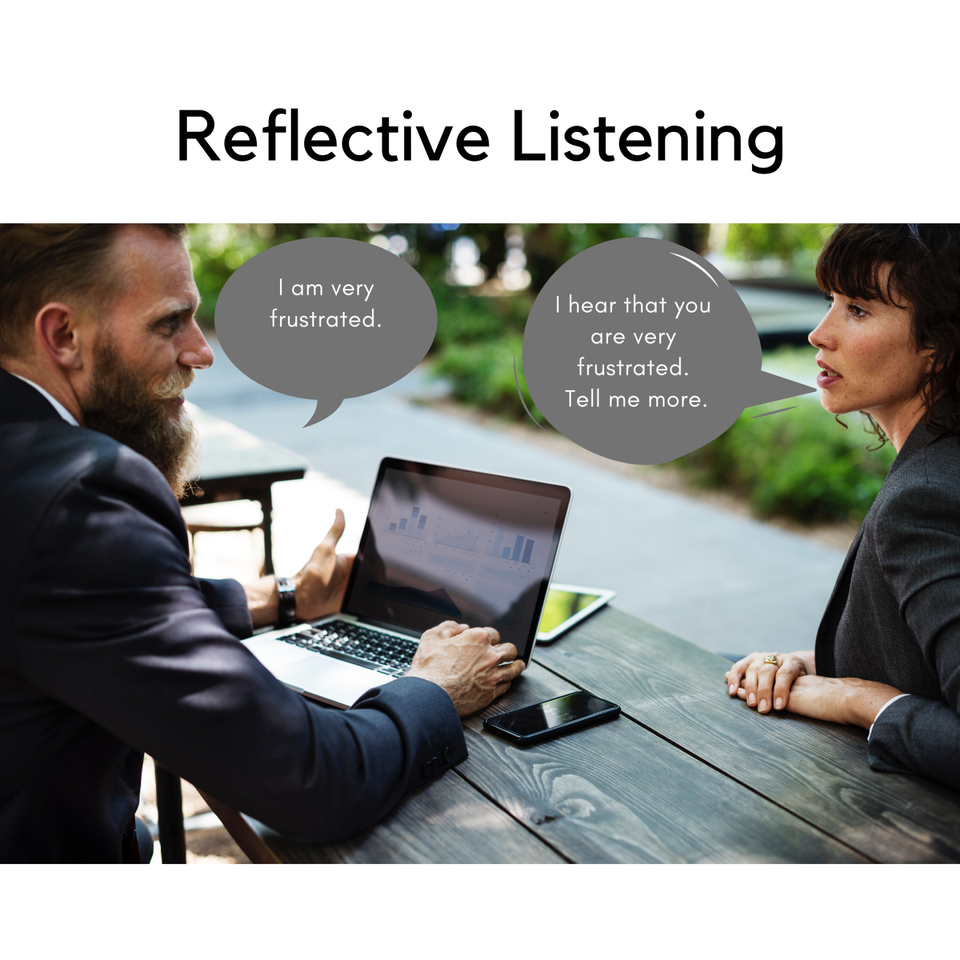When Managers Really Listen
This is a subtitle for your new post

When you talk with your team members, do you assume that you are understanding everything they are trying to tell you? Many of us would say that of course we understand. Both of us are fluent in English and we aren't stupid!
However, such thinking ignores several realities of human communication.
There may be, on average, 28 different precise meanings or innuendoes for each word in the English language.
What we as listeners 'hear' tends to only be 50% accurate. Half of what the other person is trying to communicate has not reached our brain.
The words someone says only account for 7% of the message we receive. The speaker's voice has a 38% impact and body language has a 55% impact on how we interpret the message.
Since there are so many factors that interfere with effective communication, we are wise, not stupid, to utilize reflective listening. This can be as simple as listening intently and then saying, "What I heard is . . . . Did I hear you correctly?" Then the other person can further explain to increase clarity.
How much could you reduce interpersonal discord and wasted time and money if you increased clarity and alignment within your team by regularly practicing reflective listening?

